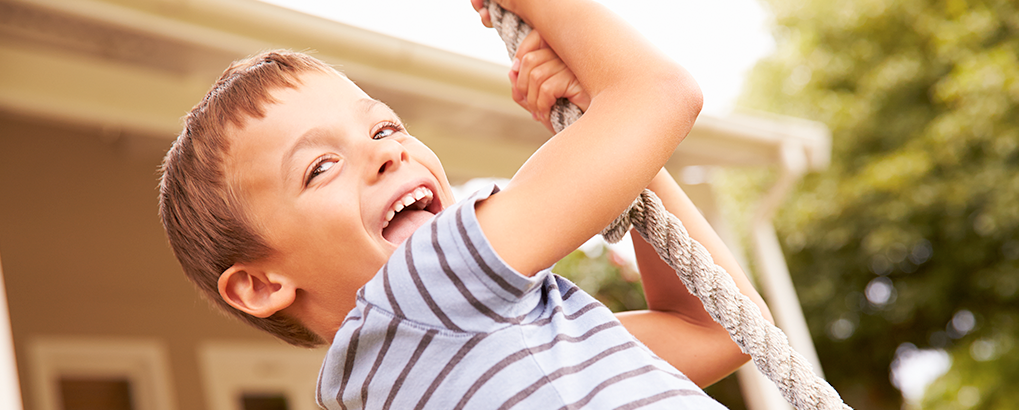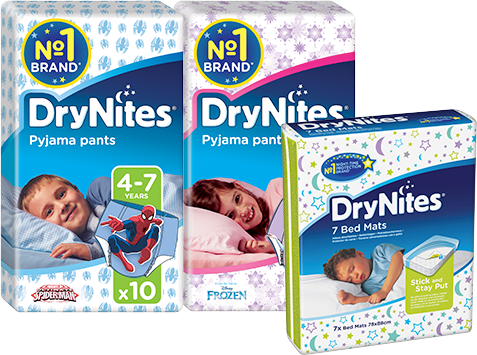Supporting your child
It’s only natural for your child’s bedwetting to leave you feeling disheartened, frustrated and concerned. After all, night time accidents disrupt everyone’s sleep. However, the good news is that there is a range of bedwetting solutions and treatments available
Stick to a good routine
A consistent routine is important to help your child learn to stay dry at night. Try to make sure it involves some quiet time together and a last wee before lights out.
Help them understand
At this age, children are more likely to start wondering why they are wetting the bed, and becoming conscious that not all children are going through this phase. Make sure they know this is not their fault, and reassure them that they will become dry in their own time. It’s also a good idea to encourage them to learn more about bedwetting together, which will help them manage the situation and feel like they are in control.
DryNites® Pyjama Pants
DryNites® Pyjama Pants are an effective way to help manage bedwetting, and work well together with other methods and solutions. With 5 layers for maximum protection, they ensure a good night’s sleep and help with a child’s development and self-esteem. They also give your child a sense of independence with their discreet design.
If you notice that your child’s DryNites® are dry for a few mornings in a row, try without. If your child has an accident in bed, go back to DryNites® and try again later on. Remember, about 1 in 10 children are not yet dry at night at the age of 8 years so is still quite common.
Monitor drinking levels
It’s important for your child get plenty to drink during the day ( NICE recommend 1.200 – 2,300 mls of water-based fluids a day for the 9-13 age group which works out at about 8-10 glasses) Fizzy and caffeinated drinks are best avoided, but don’t deny your child some water if they’re thirsty. Encourage regular toilet use – between four to seven times a day is usual.
Medical support
If you have any particular concerns about your child’s bedwetting, or if your child is showing signs that they want to do something about the situation, talk to your doctor, health visitor or continence nurse to rule out any medical issues and get guidance on how to proceed.
In some cases, your doctor may prescribe anti-diuretic medication (available as a tablet or a melt to put under the tongue) This can be useful for particular situations such as when a child spends the night away from home, but it does not work for every child. Some children may benefit from treatment with the bedwetting alarm or buzzer – which alerts the child immediately after a wetting episode – an approach that is most successful when the child is keen to become dry and is able to manage the buzzer themselves.


